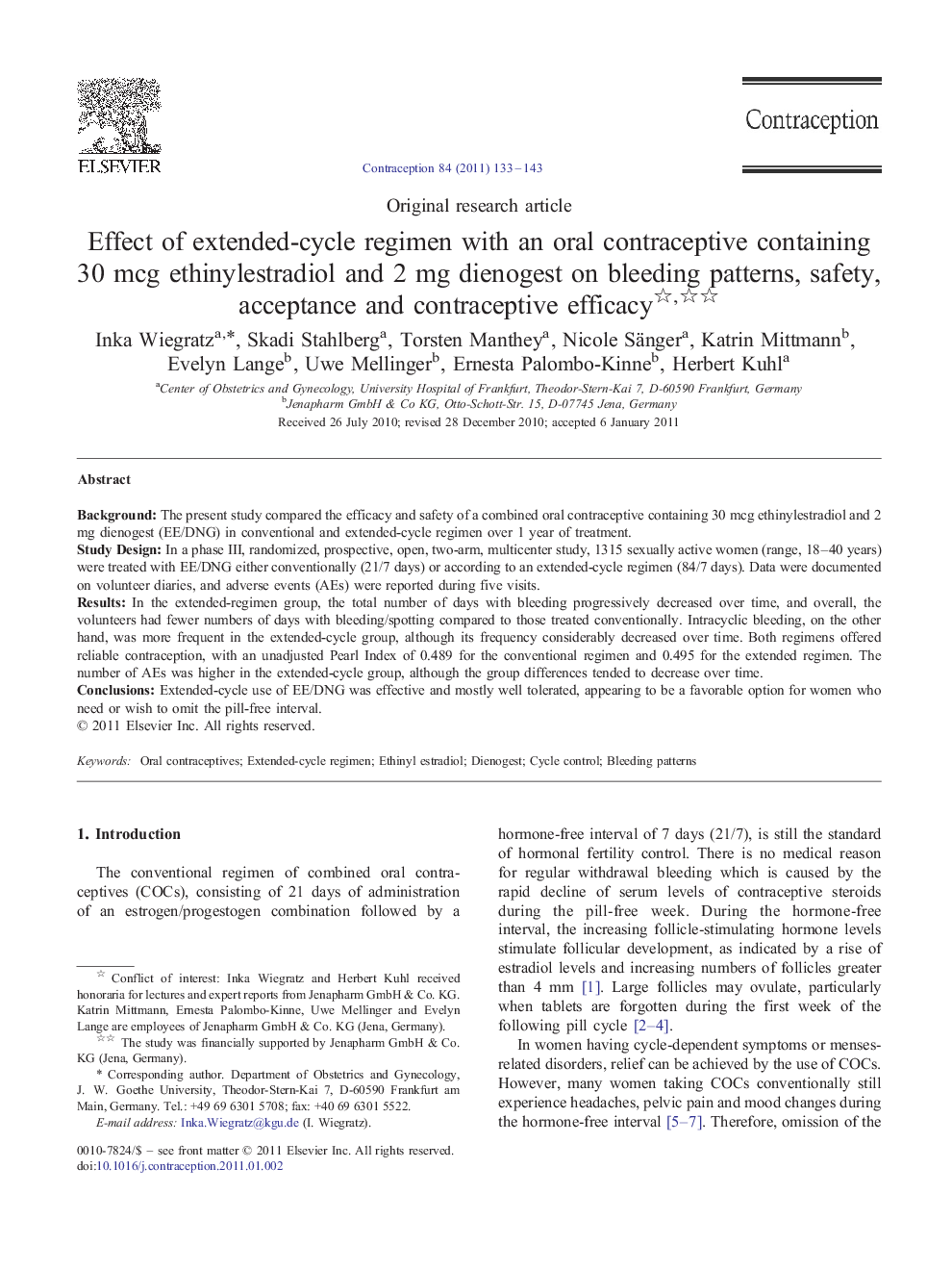| Article ID | Journal | Published Year | Pages | File Type |
|---|---|---|---|---|
| 3914651 | Contraception | 2011 | 11 Pages |
BackgroundThe present study compared the efficacy and safety of a combined oral contraceptive containing 30 mcg ethinylestradiol and 2 mg dienogest (EE/DNG) in conventional and extended-cycle regimen over 1 year of treatment.Study DesignIn a phase III, randomized, prospective, open, two-arm, multicenter study, 1315 sexually active women (range, 18–40 years) were treated with EE/DNG either conventionally (21/7 days) or according to an extended-cycle regimen (84/7 days). Data were documented on volunteer diaries, and adverse events (AEs) were reported during five visits.ResultsIn the extended-regimen group, the total number of days with bleeding progressively decreased over time, and overall, the volunteers had fewer numbers of days with bleeding/spotting compared to those treated conventionally. Intracyclic bleeding, on the other hand, was more frequent in the extended-cycle group, although its frequency considerably decreased over time. Both regimens offered reliable contraception, with an unadjusted Pearl Index of 0.489 for the conventional regimen and 0.495 for the extended regimen. The number of AEs was higher in the extended-cycle group, although the group differences tended to decrease over time.ConclusionsExtended-cycle use of EE/DNG was effective and mostly well tolerated, appearing to be a favorable option for women who need or wish to omit the pill-free interval.
